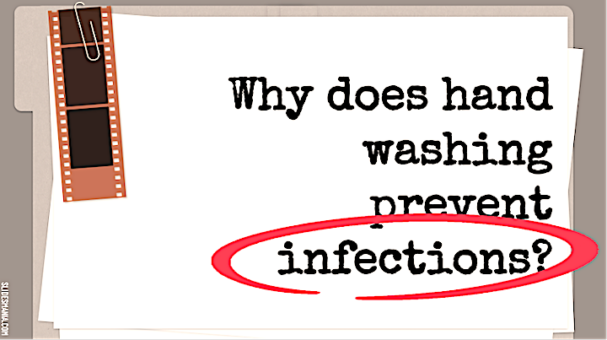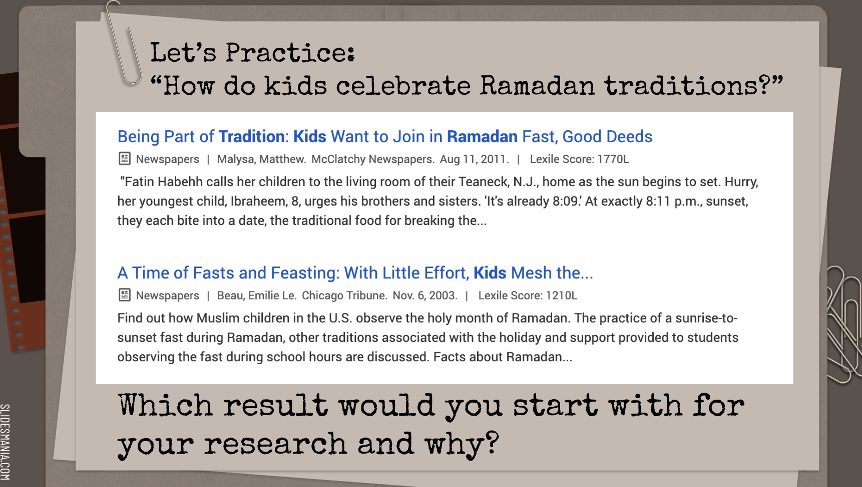Taking Small Steps to Build Research Skills
A MiddleWeb Blog
 Teaching students to research is a big part of the life of a social studies teacher. Research is a muscle that my sixth graders are still building, and as with muscles, we get stronger with repetition.
Teaching students to research is a big part of the life of a social studies teacher. Research is a muscle that my sixth graders are still building, and as with muscles, we get stronger with repetition.
The goal is to make sure the repetition isn’t tedious. Here are a few small ways I am improving our research skills this year.
Keywords Are Essential
I do a lot of work around keywords with the students. To teach students what keywords are, I made some videos with research questions, using sound effects to obscure different words.
Students figured out that without the keywords, the research is impossible. We then do an activity where I circle various words in sentences and they have to stand up or sit down based on whether they think it is a keyword.
One of my students’ favorite tricks is using the Command-F key to find specific words in texts. This helps them ascertain quickly if an article suits their purposes. For this to work, they need to keep track of the keywords.
I’ve added a box to the top of their digital note-taking document that they can continue to add to as they explore. When students are researching the same topic, they share good keywords with each other.
Synonym Scattergories
We also practice using synonyms to find more information about their topic. Their favorite way that we practice this is with a game of Keyword Scattergories. To play, I share a research question, and students work in groups to come up with a list of possible keywords for the topic.
They quickly learn that they need to move beyond the words in the prompt, because (like in the Scattergories home game) when they share their lists, any words that the different groups have in common are crossed out.
Original keywords that make sense for the topic get one point. When it’s time for students to do their own research, they can transfer this ability for easier research.
Library Databases
One way that my students research is through our library’s databases. I want to make sure that they aren’t just reading the first article that comes up in their search. To prevent this, we practice looking at the database synopses and deciding which article would be better to start with.
I try to choose two articles to compare that don’t have an easy “right” answer so that they really have to discuss their decision with their partner. This encourages them to look at the date of publication, how well known the source is, and the Lexile level.
Making Google Work for Student Researchers
Some topics don’t work well with the databases, and we also want to build their skills for broad Google searches. A tip from the Learning Support teacher on my team is to have students click on the News tab when doing a Google search, which filters out blogs and private websites. We also keep a list of reputable sites like National Geographic for students to refer to easily.
Balancing fun, clever tricks and practice
My biggest success in teaching research this year has come from finding the balance by playing fun introductory games, teaching simple strategies (like the F key) that feel like a hack, and giving lots of time to practice. I am always on the hunt for novel ways to teach research, so please share any ideas that you may have in the comments.
BONUS: Watch Megan’s video suggesting some research topics related to sustainability.






































I really love these tips and tricks! As a new teacher I often don’t realize what my kids have and have not been taught, but it becomes blaringly obvious when they struggle to find results for research projects. For my next research project I plan on taking a day and showing them how to actually find results that are reputable and what they are looking for. I find that my students so often rely on the AI overview on Google that is unfortunately often wrong. I think showing them how easy it is to actually find the right answers will really help them!